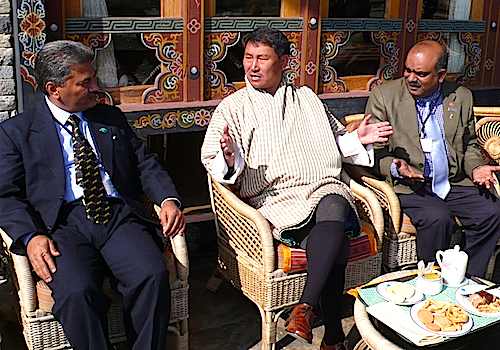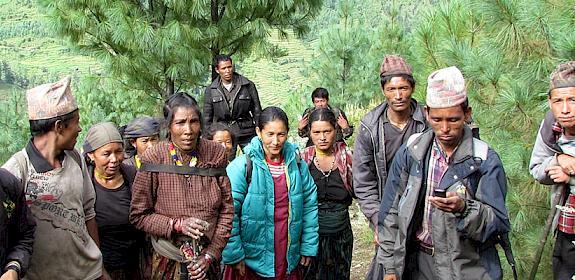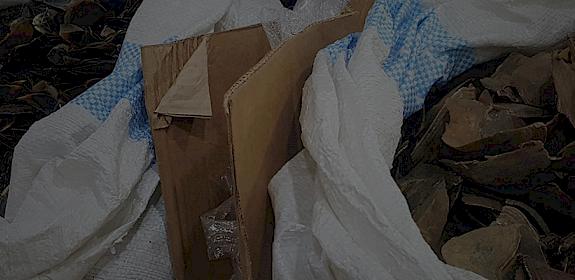South Asia Wildlife Enforcement Network (SAWEN) formally launched at Paro
Paro, Bhutan, 30th January 2011—The South Asia Wildlife Enforcement Network has been formally launched at an inter-governmental meeting hosted by the Royal Government of Bhutan, thereby opening a new chapter in regional cooperation in South Asia for strengthening wildlife law enforcement. It was agreed to base the SAWEN Secretariat in Nepal.

Illegal wildlife trade is a form of trans-national organized crime that threatens many iconic species across the world. South Asia, home to a diverse network of natural ecosystems and varied biodiversity, is especially vulnerable to such threats. Apart from key species such as tigers, elephants and rhinos, there are a variety of medicinal plants, timber, marine species, birds and reptiles are threatened by illegal exploitation and trafficking.
To counter such threats, the eight countries of South Asia have come together to establish an organized and co-ordinated body—the South Asia Wildlife Enforcement Network (SAWEN).
“SAWEN will help Bhutan to link up with authorities and officials across the region to share good practices and resources to co-operate and co-ordinate actions to apprehend poachers and traffickers,” said Lyonpo (Dr) Pema Gyamtsho, Honourable Minister for Agriculture and Forests, Bhutan, at the opening of the expert group’s meeting.
In May, 2010, the Government of Nepal hosted the First meeting of the South Asia Experts Group on Illegal Wildlife Trade which prepared an operational roadmap for the establishment of SAWEN. Continuing with the priorities identified during the Nepal meeting, Bhutan in collaboration with the Interim SAWEN Secretariat hosted the ‘Second Meeting of the South Asia Experts Group on Illegal Wildlife Trade’ on 29th and 30th Jan 2011 in Paro, Bhutan.
Relevant focal persons and experts from the governments of member countries, inter-governmental organizations including the CITES Secretariat and INTERPOL, and non-governmental organizations including WWF and TRAFFIC participated in the two day meeting. The critical points decided by the Experts Group during the meeting were:-
- An agreed action-oriented work plan for joint activities, some of which will begin immediately and which will continue to develop further as the network gathers strength;
- Establishing a SAWEN Secretariat, which will be hosted by the Government of Nepal;
- An agreed governance and operational structure for SAWEN;
- The need for strategic collaboration on communications and fundraising.
“CITES is delighted to see SAWEN come into being and we look forward to supporting the Network,” said John Sellar, Chief of Enforcement, CITES Secretariat. “The member countries have today demonstrated their commitment to bringing to justice those criminals who are robbing this part of the world of its precious natural resources.”
“These criminals should be behind bars, wearing stripes on prison uniforms. This is the only way that these individuals can be reminded of the thousands of Tigers that have been killed in recent years,” Mr Sellar said.
The meeting was organized by the Ministry of Agriculture and Forests, Royal Government of Bhutan with technical support from TRAFFIC and WWF Bhutan. TRAFFIC, the wildlife trade monitoring network has been providing technical support for the SAWEN process since its inception and acknowledges the generous funding support of the US Department of State.
“With the formal operation of SAWEN beginning henceforth, the countries of the region have now reached a milestone in their efforts to counter the spectre of illegal wildlife trade,” said Samir Sinha, TRAFFIC’s programme head in India. “This is an essential piece of a collective effort to conserve a region of outstanding biological richness and diversity.”
Notes:
SAWEN has its origins in 2008, when the environment ministers of eight countries of Afghanistan, Bangladesh, Bhutan, India, Maldives, Nepal, Pakistan and Sri Lanka met in Jaipur, India. It was here, that the member delegates announced their undying support for the formation of a SAWEN and a South Asia Experts Group on Illegal Wildlife Trade. Regional cooperation on ‘wildlife conservation and combating illegal trade in wildlife and bio-resources’ was also included as a focal component in the scope of work under the Convention on Cooperation on Environment in South Asia, proposed by India during the Environment Ministers’ meeting held in India in October 2009. This was endorsed during the 16th South Asian Association for Regional Co‐Operation (SAARC) summit held in Thimphu, Bhutan in April 2010.
On the occasion of the 2nd Meeting of the South Asia Experts Group on Illegal Wildlife trade, the representatives of the countries of South Asia, in the spirit of regional co-operation and collaboration have officially launched the South Asia Wildlife Enforcement Network (SAWEN).
TRAFFIC, the wildlife trade monitoring network, works to ensure that trade in wild plants and animals is not a threat to the conservation of nature. TRAFFIC is a joint programme of IUCN and WWF. TRAFFIC works to support government agencies in law enforcement networking across Asia and globally to combat illegal wildlife trade. Technical assistance across the enforcement continuum, including facilitation of inter-governmental dialogues, engaging the judicial sector, and working with WWF to improve linkages from national level agencies to field-based rangers, is provided on demand to member countries of the ASEAN and South Asia Wildlife Enforcement networks, as well as to China and its immediate neighbours.



